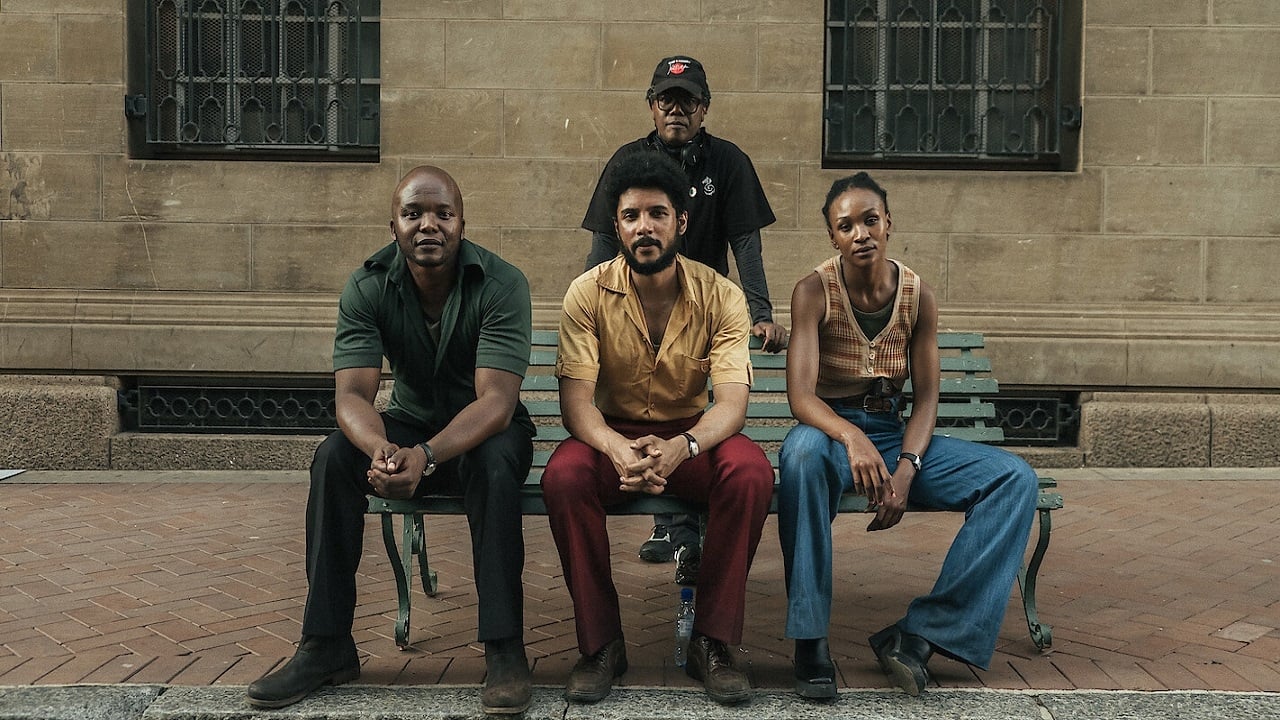There is a long 2018 Kenneth Gyang twitter thread about an article written by Tom Rowlands-Rees which details the tumultuous path taken to make the award-winning 2013 film, Confusion Na Wa. In the twitter thread, there are talks of filmmaking gods, adamant woodpeckers, insufferable computer malfunctions, police trouble, a constant lack of funds, and an overabundant will to see a passion project, which both of them had written, survive. The process it took to make the movie was as convoluted as its title. There is something to learn here. Or, perhaps, just as in the movie, there really is nothing to learn. Bad things happen to good people as indifferently as good things happen to horrible people. That you have a great idea doesn’t mean you’ll have resources to match. And the circle of life, philosophically neat as it sounds, is drawn by a rickety, existential compass.
The movie refuses to take a defined route. Although Confusion Na Wa will comfortably fit into the situational irony genre, will tick the mistaken identity box, and round off from its premise as a feel-good Nollywood comedy, its real charm is, as Hemmingway wrote, in what lies under the iceberg. This is where the ominous parallel between the production of this film and its content become eerily similar. As the movie draws patiently into its third act, events begin to take a dark turn and elements that the film seemed incapable of presenting, come to light. What are the odds that a missing phone, stolen by a lowlife thief, would tragically intertwine five different lives in a Nigerian metropolis?

What makes Confusion Na Wa great is that, save for the absence of tribalism slurs, it manages to cover almost all of the Nigerian ethos particularly peculiar with the evanescent middle class. From Muri (Toyin Oshinaike), the drug dealer, to the suave thief, Charles (O.C. Ukeje), all the way to the corrupt office boss (Tina David) and Bello (Ali Nuhu), the steadfast Nigerian who is frustrated by the Nigerian workplace ineptitude and is also plagued with cuckoldry because, apparently, to be utterly good as a Nigerian, a deliberate character gullibility must be at play. It is not that Bello doesn’t know he is being cheated on by his boss, his colleagues, and by his wife, even after she appears vindicated, but he deliberately looks away from it all and pretends to be unaware. Bello represents the Nigerian who chooses to be good and risks being termed as naïve while everyone thrives around him in corruption. While this analogy might not be what the filmmakers meant, it fits as a glove in hand.
And there are the pragmatically righteous as well. Those who recognize the frailties of corruption and decadence of morality, those who do what they must, or what they think they must, to fix the country. It is preposterous that a man would take his teenage son to a whorehouse to cure his homosexuality, but it is not a new or alarming thing in Nigeria. The same man owns a newspaper company; a flawed large-scale disseminator of intellectual and moral opinions. The spectrum of being Nigerian and the nuance it takes to express it are numerous, so much that it is impossible for a movie to capture it all. Confusion Na Wa recognizes this and it excellently plays to this limitation. But while it thrives in one stance, it understandably doesn’t live up to expectations in another department.

Amongst the various character surprises in Confusion Na Wa, Uchiche (Gold Ikponmwosa) remains outstanding as the philosopher criminal, and, interestingly, the tragic hero. In spite of his half-baked ideals on life, naïve, impractical philosophies, and far-fetched racism conspiracy theories, Uchiche stands out quietly as a prominent character. Playing across O.C. Ukeje’s bawdy character, Charles, Gold Ikponmwosa manages to subvert screen authority. Their chemistry as mischievous lead duo goes a long way to cement the film’s protracted humour. In spite of the dark aspect of Nigerianness that they both represent, they are persistently the most relatable characters. There are lows in the acting, particularly Ali Nuhu’s, which comes off as plastic in most scenes. The cast seems like a motley of professional and amateur actors, and although they all do their best, in some cases, especially with the minor roles, the lack of adequate acting ability becomes too obvious.
In retrospect, it is easy to term Confusion Na Wa as the first vestiges of Nigerian indie filmmaking. And that Kenneth Gyang twitter thread confidently points in that direction. But all great Nigerian ideas are subject to great Nigerian complications. After the film had been shot entirely in blood and sweat and it had won the best African movie award 2013, the young, mercurial filmmakers were faced with the final obstacle of distribution, at which they failed. It marks the great structural ineptness of the industry that the best film of the year couldn’t be properly distributed. And ironically, this flaw, this ineptness, is what Confusion Na Wa typifies. Good things happen to bad people. Bad things happen to good people. Just as bad things happen to good films. Thankfully, the movie is wrong, because almost a decade after, it has secured a Netflix deal. Perhaps, the good, deliberately gullible Nigerian should take a cue from this.
Rating: 8/10
Side Musings
- Some action scenes were a tad shabby. An example is the party scene when the police beat Charles up.
- The film has some great dialogues that have held up to time.
- The incredible soundtrack should be paid attention to.
Confusion Na Wa is currently streaming on Netflix in some regions.





7 Comments